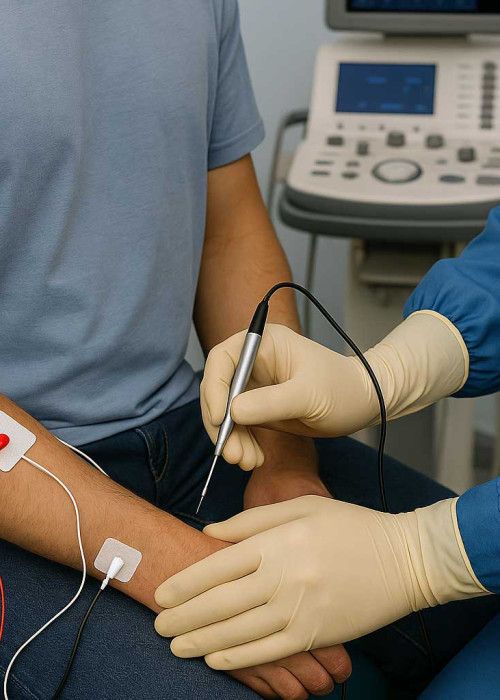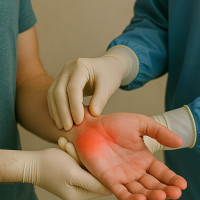Evaluate Muscle and Nerve Function with Precision
Electromyography (EMG) is a specialized test used to assess the electrical activity of muscles and nerves. It helps identify whether weakness, numbness, tingling, or pain is due to a nerve disorder, muscle disease, or an issue at the nerve-muscle junction. Often paired with a nerve conduction study, EMG can detect conditions such as carpal tunnel syndrome, peripheral neuropathy, muscular dystrophy, ALS, and other neuromuscular disorders.
During the exam, a fine needle is inserted into specific muscles to record their electrical activity at rest and during movement. This helps pinpoint abnormal nerve or muscle function. The procedure is performed by a physiatrist and typically lasts around 30 minutes.
At DouleurMD, we offer quick access to EMG appointments, with results sent promptly to your referring physician. Our expert evaluations support accurate diagnoses and effective treatment planning—whether you’re experiencing muscle weakness, unexplained nerve pain, or mobility issues.




